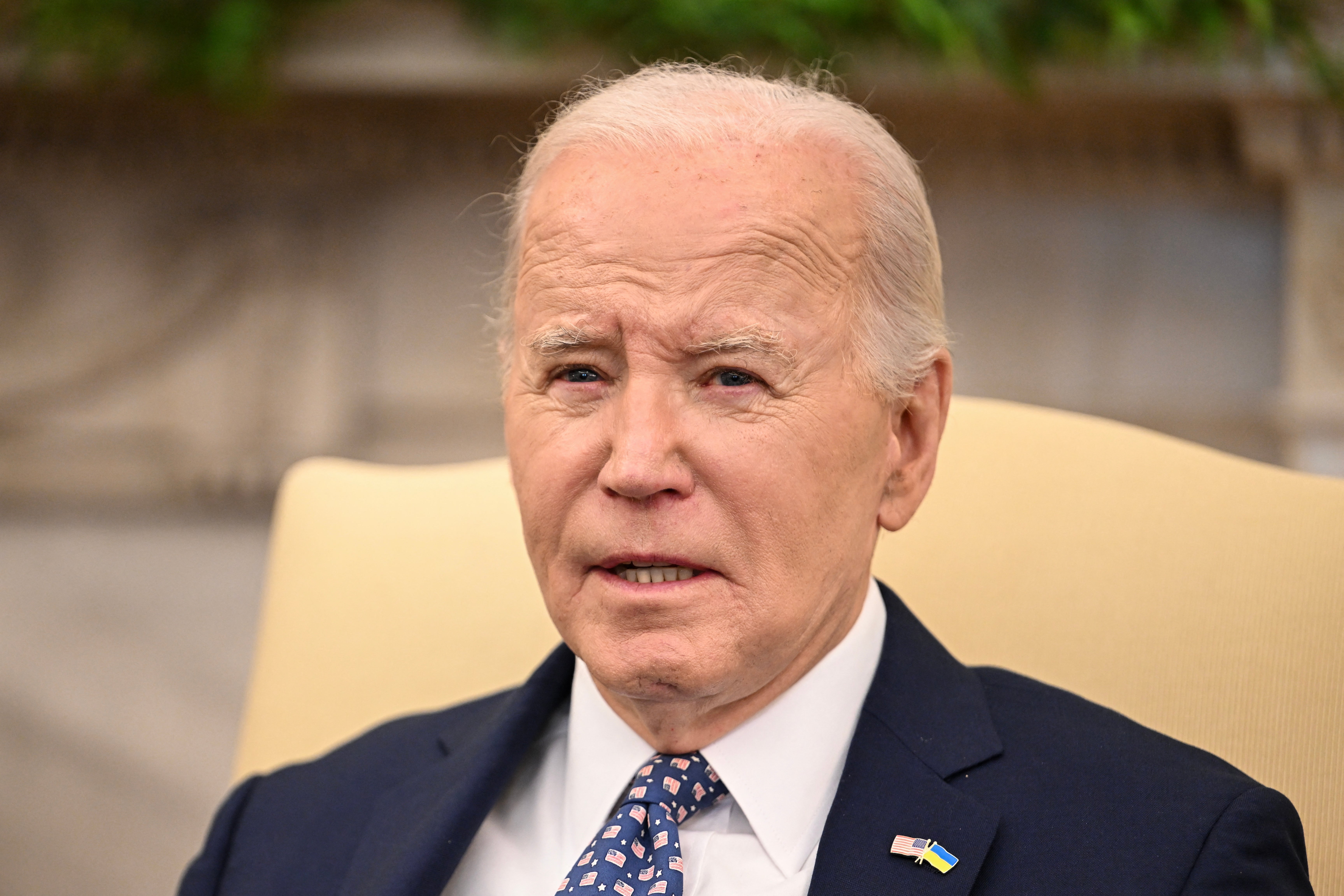Palestinian lives depend on those negotiating a Gaza ceasefire as they face famine and threat of Israeli assault
People sheltering in Rafah and families across the Strip face catastrophe, writes Bel Trew


Palestinian families living in tents off humanitarian aid in Rafah – where a 1kg bag of flour (if you can find one) now costs nearly £40 – know their lives are literally in the hands of those negotiating a truce thousands of miles away.
Most of the people in this overcrowded city bordering Egypt have already been displaced because of the intense fighting and vast destruction in Gaza caused by Israel. Families live on the streets, in school and hospital courtyards or in the squares.
There are no basements to seek shelter in, few walls to crouch behind. There is nowhere to run, there is nowhere to hide.
Israel has vowed a ground assault into Rafah – where an estimated 1.5 million people are crammed into a few square kilometres – seen by Tel Aviv as the last stronghold of Hamas, responsible for the 7 October attack in southern Israel.
The United Nations said any offensive into the town would be slaughter.
In the north of Gaza, much of which has already been flattened by Israel’s advance, Oxfam said on Tuesday: “The risk of genocide was mounting.” Some 300,000 people still live there, despite being almost entirely cut off from aid for four months.

People in Gaza City are reportedly eating grass and are making bread out of animal feed. Oxfam said there is now “catastrophic hunger” with people drinking toilet water and eating wild plants.
Ahmed, a father of four living in Rafah, said in a voice note sent to me that he has a video of a young boy in the north filling his pockets with sand and flour because he was so hungry, after Israeli solders shot at some sacks of aid that had been delivered near a beach.
In the north desperate people crowd around supply truck that can make it up there: the scenes described to me by aid workers who have tried are beyond apocalyptic.
Palestinian health officials say around 30,000 Palestinians have been killed in Israel’s four-month-long bombardment of Gaza. Hunger could kill hundreds, if not thousands, more.
Without a breakthrough in aid, security and access, there will be a devastating famine, Oxfam said.
And so – families across the strip tell me every day – all they can do is pray a truce is reached. Pray that the international community cares enough to exert significant pressure on all sides to bring about a hostage ceasefire deal before it is too late.
Right now, after many false starts, there is a tantalising glimmer of hope that a temporary ceasefire deal may even be reached within a week.
US president Joe Biden said on Monday Israel would be willing to halt its war during the upcoming Muslim holy month of Ramadan, if a deal is reached to release some of the hostages Hamas still holds in the wake of its assault, which killed around 1,100 people and saw another 250 taken hostage.

Mr Biden even talked about an agreement being brokered by 4 March. “My national security adviser tells me that they are close. They’re not done yet. My hope is by next Monday,” he said.
The UK has also joined the chorus of optimism, with Downing Street saying on Tuesday a truce deal is “within reach”.
But Israel, Hamas and the Qatari negotiators tasked with nailing down the details have sounded more cautious.
Hamas officials told Reuters that there were “still big gaps to bridge”. Israel’s government spokesperson said if anything were to go through, Hamas would have to drop its “outlandish demands”.
Dr Majed al-Ansari, spokesperson for Qatar’s foreign ministry, said Doha remains “hopeful but not necessarily optimistic” as there were still a number of issues that they did not have agreements on.
So far they are debating a suspension in fighting for 40 days, to allow some – but not all – of the remaining 136 hostages seized by Hamas to be released. In exchange Israel would release hundreds of Palestinians detained in Israeli prisons, most without charge, and there would be a surge in badly needed humanitarian aid and Israeli troops would pull out of populated areas in the Strip.
It falls short of Hamas’s initial demands for an indefinite ceasefire and the withdrawal of all Israeli forces. Israeli prime minister Benjamin Netanyahu has repeatedly said that they would only delay their Rafah offensive not cancel it.
For the families in Gaza, delays are deadly.
In the voice note sent to me on Tuesday, Ahmed said if the world’s governments, if global aid institutions , if even the UN cannot help families in Gaza get enough food, “how can [families] possibly help themselves?”
“My heart is broken and l feel helpless because we absolutely cannot do anything,” he said in desperation after describing how he failed to find flour for five elderly ladies who were desperate.
“I wish, I wish there was a way to help my beloved ones, my friends.”
Join our commenting forum
Join thought-provoking conversations, follow other Independent readers and see their replies
Comments
Bookmark popover
Removed from bookmarks